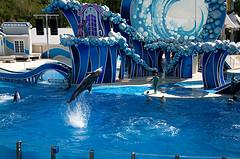 Although in the subsequent years, more specifically in 1976, the plan to meet dimmed and suffering innumerable critical, the government was remained in the search for its objectives, that had been to a large extent reached. The strategies adopted in 1974, that they aimed at to brake the importations, to decelerate the growth of the economy and to adjust the interchange relationships if they had reflected in 1977, when the economy if stabilized and the commercial transactions if they had balanced. However, at the moment that reached the waited stability, the country was affected by as the shock of the oil, that made the value of the liquid fuel importations to jump of US$ 4 billion for US$10 billions between 1981 and 1982, causing an explosion in the taxes of interests and thus increasing the external accounts. The fall of the capacity to matter required a reply of the country, that would have to come by means of the addition of measures to PND II, to reduce the fuel consumption, to increase the exportations and mainly to substitute and to reduce importation. In way to these problems, in 1979, Netto Dolphin comes back as Minister of the Planning, that, at the same time where it did not admit the contraction, defined strategies to take the country ' ' in return to the economy of mercado' '. The minister affirmed that what lacked to the country was a treatment of shock in 1973, therefore Brazil started to consume very beyond what its capacity allowed, what resulted in an increase in the taxes of interests and deficit in the current transactions. Thus, in 1981, Netto dolphin turned it a plan of adjustment that provided a considerable increase in the internal saving, lined up the relative prices between some sectors, eliminated the subsidies and reduced the intervention of the government in the economy.
Although in the subsequent years, more specifically in 1976, the plan to meet dimmed and suffering innumerable critical, the government was remained in the search for its objectives, that had been to a large extent reached. The strategies adopted in 1974, that they aimed at to brake the importations, to decelerate the growth of the economy and to adjust the interchange relationships if they had reflected in 1977, when the economy if stabilized and the commercial transactions if they had balanced. However, at the moment that reached the waited stability, the country was affected by as the shock of the oil, that made the value of the liquid fuel importations to jump of US$ 4 billion for US$10 billions between 1981 and 1982, causing an explosion in the taxes of interests and thus increasing the external accounts. The fall of the capacity to matter required a reply of the country, that would have to come by means of the addition of measures to PND II, to reduce the fuel consumption, to increase the exportations and mainly to substitute and to reduce importation. In way to these problems, in 1979, Netto Dolphin comes back as Minister of the Planning, that, at the same time where it did not admit the contraction, defined strategies to take the country ' ' in return to the economy of mercado' '. The minister affirmed that what lacked to the country was a treatment of shock in 1973, therefore Brazil started to consume very beyond what its capacity allowed, what resulted in an increase in the taxes of interests and deficit in the current transactions. Thus, in 1981, Netto dolphin turned it a plan of adjustment that provided a considerable increase in the internal saving, lined up the relative prices between some sectors, eliminated the subsidies and reduced the intervention of the government in the economy.